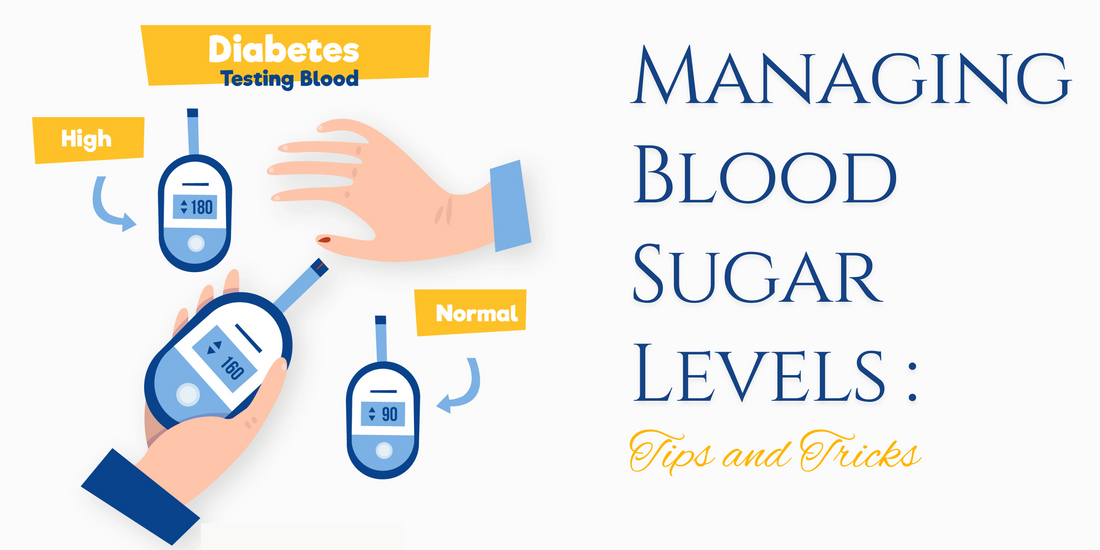
Managing Blood Sugar Levels: Tips and Tricks
Million's SmileShare
Maintaining optimal blood sugar levels is crucial for managing diabetes effectively and living a healthy life. Whether you're newly diagnosed or have been managing diabetes for years, finding the right strategies to control your blood sugar can make a significant difference in your overall well-being. This blog provides practical tips and tricks for managing blood sugar levels, from dietary choices to exercise routines.
The Importance of Blood Sugar Control
Blood sugar control is vital for several reasons:
- Preventing Complications: Poorly controlled blood sugar levels can lead to complications such as heart disease, kidney damage, nerve damage, and vision problems.
- Improving Quality of Life: Stable blood sugar levels can help you feel more energetic, reduce symptoms like fatigue and irritability, and improve overall health.
- Enhancing Longevity: Proper blood sugar management is linked to a lower risk of severe complications and a longer, healthier life.
Dietary Tips for Stable Blood Sugar Levels
-
Choose Low-Glycemic Foods: Foods with a low glycemic index (GI) cause a slower rise in blood sugar levels. Opt for whole grains, legumes, non-starchy vegetables, and fruits with low GI scores.
-
Balance Your Meals: Incorporate a mix of carbohydrates, proteins, and healthy fats in each meal. This helps to slow down the absorption of glucose and keeps blood sugar levels steady.
-
Portion Control: Eating large portions can lead to spikes in blood sugar. Use portion control techniques and pay attention to serving sizes.
-
Eat Regularly: Don’t skip meals. Eating at regular intervals helps maintain consistent blood sugar levels throughout the day.
-
Limit Sugary Foods and Drinks: Reduce consumption of sugary snacks, desserts, and beverages. Opt for healthier alternatives and read food labels to avoid hidden sugars.
The Role of Exercise in Blood Sugar Management
-
Incorporate Regular Physical Activity: Aim for at least 150 minutes of moderate-intensity exercise per week, such as brisk walking, cycling, or swimming. Regular exercise helps improve insulin sensitivity and lower blood sugar levels.
-
Include Strength Training: Adding resistance exercises, such as weight lifting or body-weight exercises, can further enhance insulin sensitivity and muscle mass, which helps manage blood sugar levels.
-
Stay Consistent: Establish a regular exercise routine to help maintain stable blood sugar levels. Consistency is key to achieving long-term benefits.
-
Monitor Blood Sugar Levels: Check your blood sugar levels before and after exercise to understand how different activities affect your glucose levels. Adjust your exercise routine as needed.
Medication and Insulin Management
-
Follow Prescribed Treatments: Adhere to your prescribed medication regimen and insulin therapy as directed by your healthcare provider. Consistent use of medication helps regulate blood sugar levels effectively.
-
Monitor Dosages: Regularly review your medication dosages with your healthcare provider to ensure they are appropriate for your current health status and blood sugar levels.
-
Understand Side Effects: Be aware of potential side effects of your medications and discuss any concerns with your healthcare provider. Proper management of side effects can help maintain better blood sugar control.
Monitoring and Adjusting Blood Sugar Levels
-
Use a Glucometer: Regularly monitor your blood sugar levels using a glucometer or continuous glucose monitoring system. Tracking your levels helps you understand how your lifestyle, diet, and medications impact your blood sugar.
-
Keep a Log: Maintain a blood sugar log to track patterns and identify factors that may cause fluctuations. Share this information with your healthcare provider to make necessary adjustments to your management plan.
-
Adjust as Needed: Based on your blood sugar readings, make adjustments to your diet, exercise, or medication as recommended by your healthcare provider.
Conclusion
Managing blood sugar levels effectively requires a combination of healthy eating, regular exercise, consistent medication use, and diligent monitoring. By implementing these tips and tricks, you can better control your blood sugar levels, reduce the risk of complications, and improve your overall quality of life.
Remember, diabetes management is a journey, and finding what works best for you may take time. Always consult with your healthcare provider for personalized advice and support in managing your blood sugar levels.
Taking control of your diabetes today will help you lead a healthier, more fulfilling life tomorrow.
